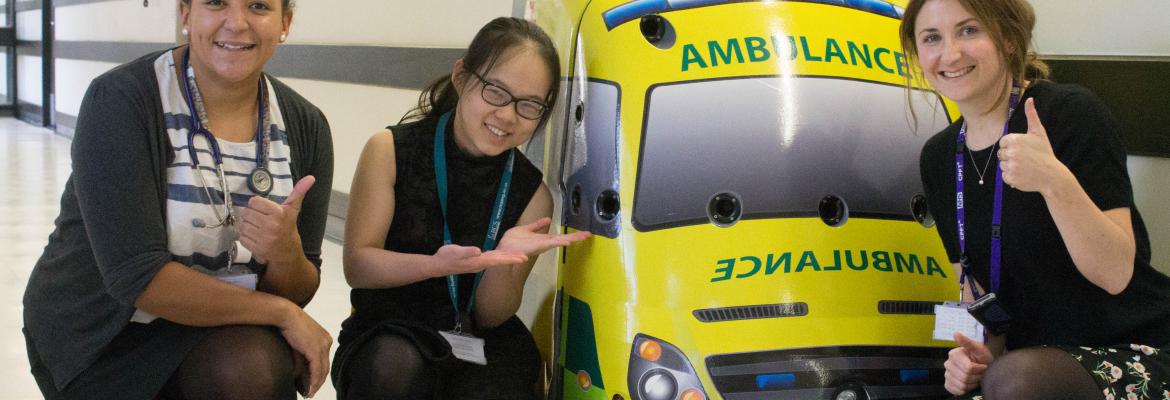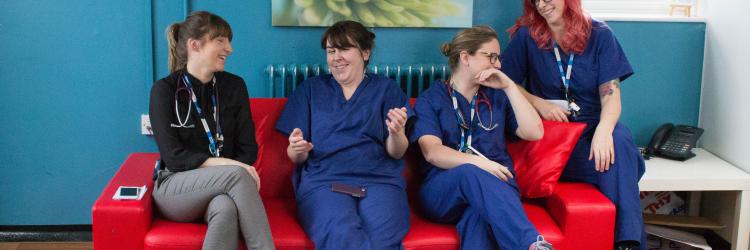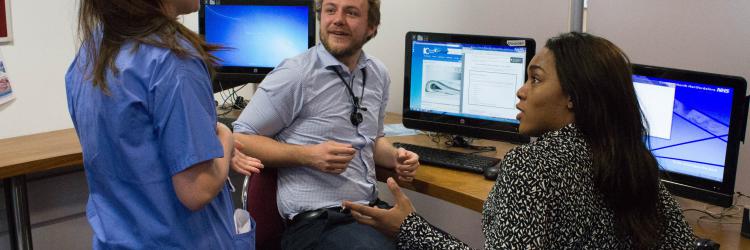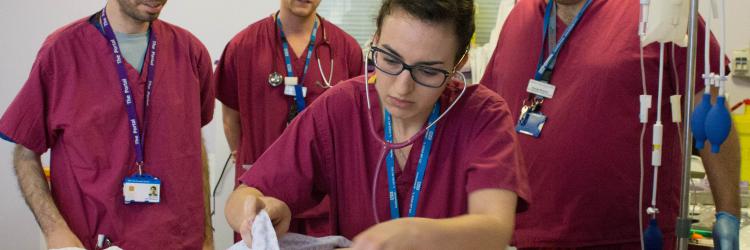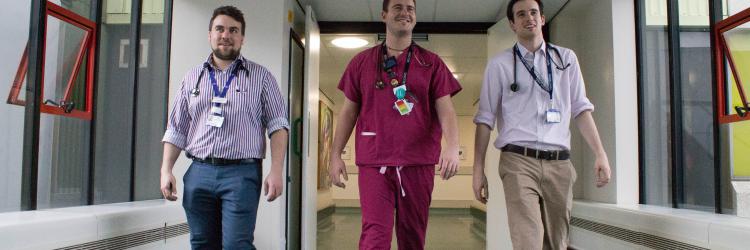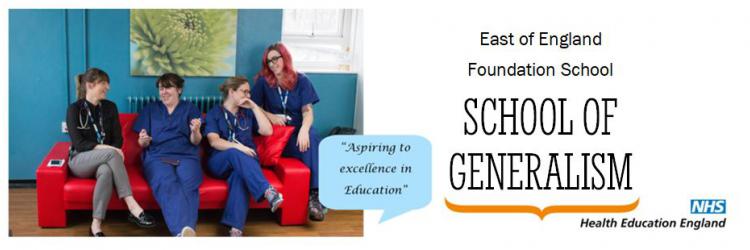Photographs of real EBH and EAFS trainees, independant photographer Elinor French
Copyright Foundation Training in the East of England
Welcome to the School of Foundation!
We are a keen and enthusiastic team of educators, all aiming to promote our foundation training.
These pages cover the East of England Foundation School.
We welcome a diverse group of doctors to our thriving hospitals, consisting of both rural and seaside trusts through large, active district general hospitals to our teaching hospitals. Our programmes allow you to choose whether you preference staying in one hospital for both years, or rotate between one of our district hospitals and a teaching hospital. All our programmes include a community placement and are broad and balanced.
Once your Foundation Training is complete you will have plenty of opportunity to continue your career in the East of England. With internationally renowned experts, world-class facilities and superb research opportunities, the East of England offers everything you could need. Our Beyond Foundation pages are being developed for you to easily access careers support.
All FAQs, Useful links and documents can be found HERE!
Bridge and the teaching programme
We have the 60 hours CPD taught programme, we have lots of recordings, live links and info on bridge. Please check regularly for updates.
on bridge are:
- The live events to book into for clinical and non clinical hubs. you may book additional events as non core mandatory, or part of your study leave entitlement
- Pre recorded non clinical hubs - again you can take leave to watch for your non core mandatory
- Links to live @f1essentials as well as pre-recorded content, aimed at new F1. You can use live for core mandatory and recorded for non core mandatory.
- Recorded ATSP
- Recorded simulation teaching and wrap around VR teaching, as well as links to external VR
- Other recorded webinars from UKFPO, BMA, other trusts generic programme,
- Wellbeing and careers resources
- Links to book into for study leave courses: train the trainers and the leadership ladder currently
papworth.fyregionalteaching@nhs.net for any queries
Your mandatory 60 hours breakdown
You have study leave allowance of 60 hours [10 days] to achieve all of these areas in the core and non core mandatory, whether it is face to face, remote or asynchronous.
Check out the training programme area for more details
PSW: https://heeoe.hee.nhs.uk/psw/east-england-professional-support-and-well-being-service
Headspace: https://work.headspace.com/nhs-clinical/member-enroll
NHS practitioner health: https://www.practitionerhealth.nhs.uk/
Doctor support network: https://www.dsn.org.uk/
BMA counselling: https://www.bma.org.uk/advice/work-life-support/your-wellbeing/counselling-and-peer-support
NHS mental health site: https://www.nhs.uk/oneyou/every-mind-matters/
The joyful doctor: https://www.joyfuldoctor.com/
Please also go to the UKFPO website and look at the NEW curriculum for the summary narrative, and how this feeds into ARCP requirements for the summer. The national info is detailed and helpful.
You should start crafting this at the end of the first rotation and discuss with you ES and CS your needs in your induction for second post.
